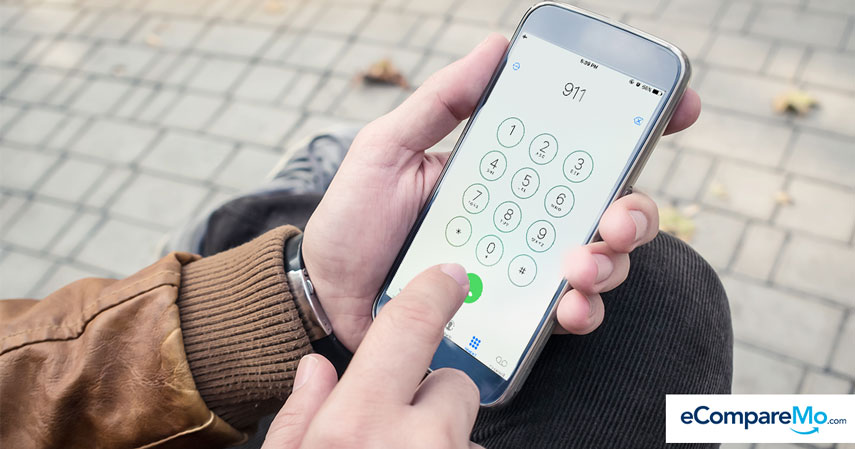Everything You Need To Know About The Philippines’ Own 911 Emergency Hotline
4 min readEven before President Rodrigo Duterte assumed office last month, he’d promised to make government services more efficient as part of his cleanup drive against corruption. To streamline the country’s emergency response system and prevent crime, the Philippine National Police launched the 911 hotline nationwide on August 1.
Starting this month, citizens in distress can now use the new emergency hotline to call for urgent police, medical, and fire assistance.

Just how efficient is the Philippines’ own 911 as compared to the previous 117 hotline? You may want to read first the changes on our new hotline before you put it on speed dial.
The number of the best
President Duterte promised during his campaign that he would make Davao’s 911 hotline become available nationwide, which he delivered exactly one month after taking oath. The emergency services number aims to replace 117 as the country’s emergency number for different reasons. With the new hotline, it is much easier to connect fire, ambulance, and police responders to people who need it the most.
Read:Â How Duterte’s ‘First 100 Days’ Net Satisfaction Rating Compares To His Predecessors
Modeled after Davao City’s Central 911—a program Duterte started when he was still city mayor—the system aims to make response time much quicker. With the aid of a computerized system, the hotline connects the caller to the nearest dispatch for faster response time.
Currently, the 911 system is still in transition, meaning both 911 and 117 are still in service while the government is still shifting all of its resources to the former. According to Interior Secretary Ismael Sueño, both numbers will be kept by the government in the meantime until “a new MOA is signed by the agencies concerned and a new executive order is issued by Duterte,†reports the Philippine Star.
First run
August 1 marked the first day of operation of the 911 hotline, which is a milestone in creating an aerodynamic response system for different scenarios. But while the activation of 911 has been successful, it seems like the first day of the hotline has been plagued by curious callers and jesters.
According to a report by the Philippine Daily Inquirer, the PNP monitoring center, which will initially man the 911 command center, received 2,475 calls in a span of seven hours. However, the 45-man center only reported 75 calls as legitimate, while 304 calls were pranks and 1,119 were dropped calls.
With the staggering number of calls that might’ve blocked legitimate callers on the first few hours of operations, PNP chief Director General Ronald Dela Rosa asked the citizens to avoid making inappropriate calls to the hotline since it is meant for prompt response for people in emergencies.
Fake calls, real penalties
“We are currently tracking the prank callers and we will make sure that you will be unmasked,” said Dela Rosa in a statement. “I am also appealing to our people to refrain from making prank calls or test calls to our 911 hotline because this will clog up the lines and prevent the people with real emergencies to reach us.â€
Prank calls are not new to 911. Even before its nationwide implementation, its predecessor has been plagued by fake callers.
InterAksyon bared that 95% to 97% of calls placed on 117 were hoaxes. To combat this and other mobile related crimes, Senator Richard Gordon urges the legislative branch to make his newly filed Senate Bill No. 105, or the SIM Card Registration Act. When this becomes a law, all mobile phone users will be forced to register their SIM cards, deterring jesters from using the hotline for fraudulent calls.
Despite the possibility of prank callers clogging the hotline, the system promised a five- to 10-minute response time once the call has been placed.
Read:Â Why You Should Never Buy Smuggled Goods
The cost
Since the government is still in the transition stage from 117 to the all-new 911, some details still need to be ironed out. One of the most pressing concerns the public has in terms of the cost of call.
In a Rappler report about the cost of 911 calls, the creation of a new legal entity will only happen once the president signs a new Executive Order that will repeal the previous EO that made the 117 body possible.
Until there is no Presidential order to define this by law, a 911 call will cost P5.50, with P5 as the flat rate plus 10% value-added tax (VAT).
A few days before the launch of 911, Globe Telecom fell in hot water for announcing that on top of regular voice call charges, it would bill the callers an additional P5. Globe defended this by saying that they’re only following the directive of the DILG to template the billing on 911 from 117 until no directive has been published.
Unlike Davao City’s 911 system, which is free of charge, the nationwide implementation of the emergency number may cost callers—but not for long. Both Globe and PLDT confirmed that President Duterte wanted 911 calls to be free of charge, and they will be the ones announcing it once all the stakeholders have met and arrived at a final discussion.
